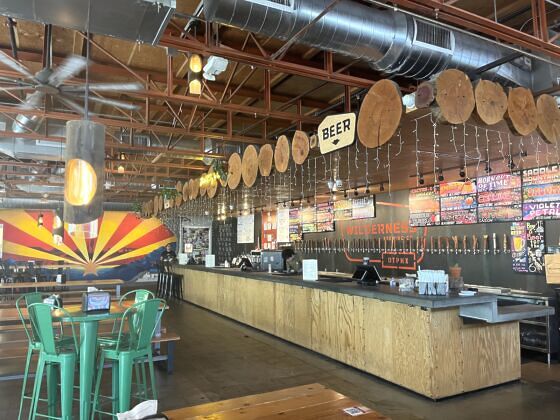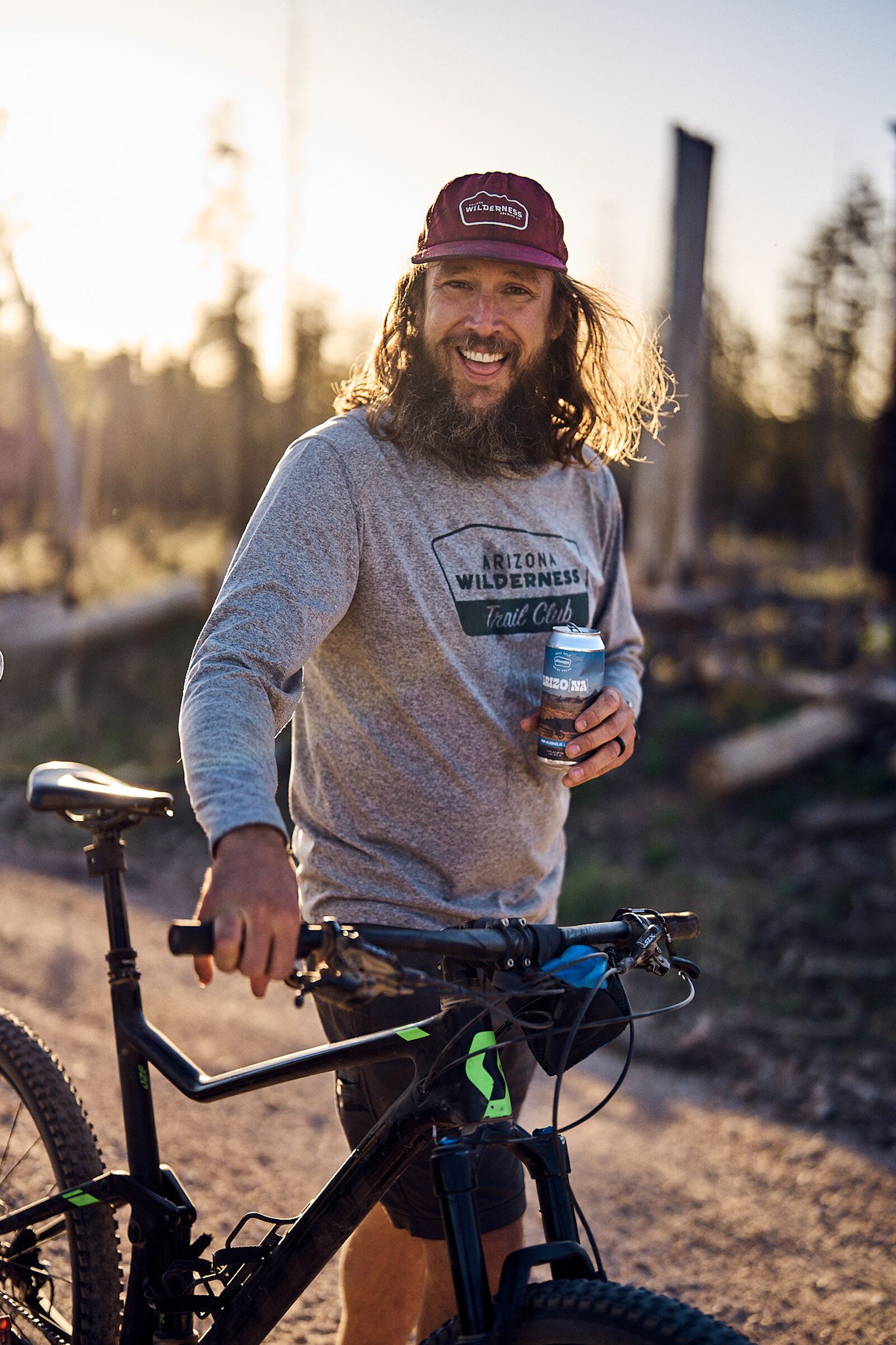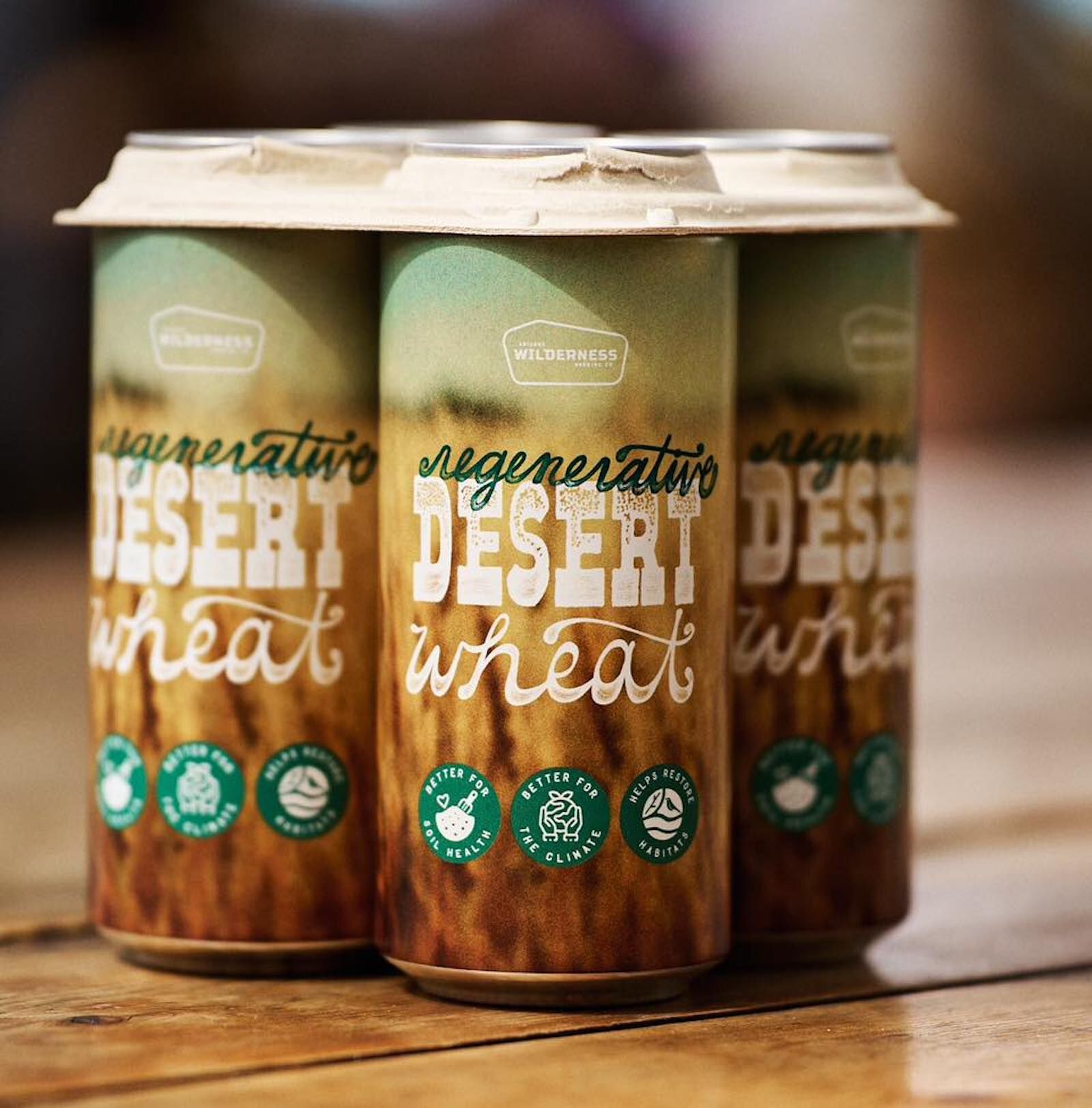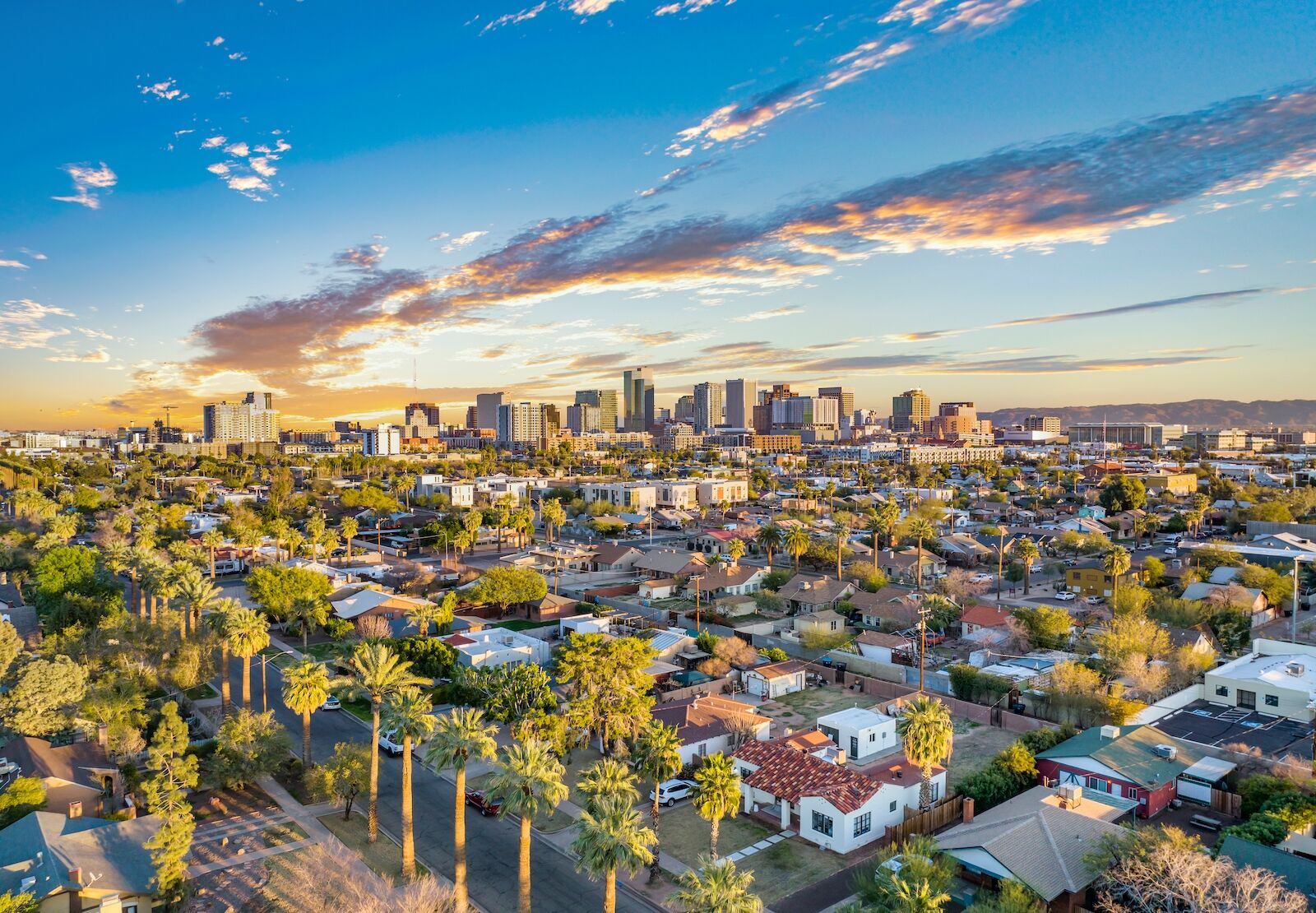For many travelers, sampling the local brew is a routine part of any trip. Arizona Wilderness Brewing Company, which operates restaurant/taproom locations in Phoenix and Gilbert, Arizona, helps visitors do so in an environmentally friendly manner, with beers that advocate for conservation causes and a mantra that speaks to the heart of the American West. Not only that, but the brewing company is part of a cohort of Phoenix-area businesses helping to make the city more resilient in the face of a changing climate, thinking beyond the golf links and pool resorts to turn Phoenix into a place people come to build a better future for both residents and visitors.
Jonathan Buford founded Arizona Wilderness Brewing Company in 2013 with co-founder and brewer Patrick Ware. His idea for the brewery came, appropriately, while on a backpacking trip in Arizona’s Chiricahua Wilderness. With a beer in hand, Buford proclaimed that he wanted to combine his passions for wilderness and craft beer and support local farmers and purveyors at the same time.



